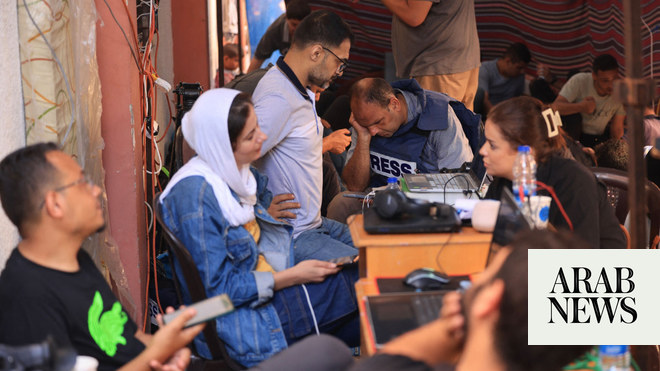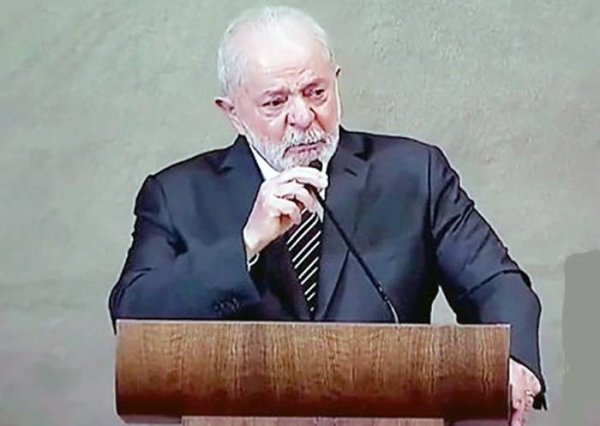
Jair Bolsonaro’s latest efforts to make guns more easily available to Brazilians have sparked anger and trepidation with some calling the moves a threat to the South American country’s young democracy.
Brazil’s pro-gun president announced four presidential decrees designed to facilitate legal access to weapons on Saturday morning, as the country’s coronavirus death toll swelled to nearly 240,000.
The changes, which came into effect immediately, increase the number of firearms and the amount of ammunition citizens can legally buy and make such weapons easier to acquire, stripping back federal police and army oversight of gun ownership. Hunters can now buy 30 guns each and sports shooters up to 60.
“The people are pumped,” Bolsonaro, a former army captain whose political movement’s trademark salute is a two-fingered gun sign, bragged on Sunday.
Bolsonaro’s politician sons, who are the leading lights of Brazil’s burgeoning gun movement, also celebrated a move experts say is designed to excite the president’s hardcore base.
“Shooting’s a sport. Demonizing it is part of a dictatorial leftist plan,” tweeted Eduardo Bolsonaro, a congressman who is Steve Bannon’s regional representative and often poses with guns on social media.
Gun control campaigners and Bolsonaro’s opponents are appalled, warning his relaxation of gun laws was helping organized crime groups to expand their arsenals and would make one of the world’s most violent countries even more violent.
Gun ownership and imports have soared since Bolsonaro took office in January 2019 and began issuing a succession of decrees – some of which were later suspended – making it easier to buy more and more powerful weapons, including semi-automatic assault rifles.
Marcelo Freixo, a leftist congressman, called Bolsonaro’s actions “a threat to democracy”. “Bolsonaro doesn’t want an armed society because he believes individual rights should be above whatever else ... He wants to undermine our institutions so you have a society where a coup d’état can be carried out with guns,” Freixo said, urging citizens to wake up to the threat.
Freixo noted how Brazilian citizens were now buying more ammunition than all of the country’s police forces put together, putting the state’s monopoly on force in check. “What’s happening is extremely serious.”
“I’m very worried because these decrees … have already allowed for an immense amount of guns and ammunition – and much higher calibre guns – to be bought,” said Ilona Szabó, a gun control specialist who runs the Igarapé Institute.
But Szabó said her concerns were about how those weapons might affect Brazil’s democracy, which was restored in 1985 after two decades of military rule, as well as public security.
She feared the flood of new weapons could feed radical US-style citizen militias that Bolsonaro might mobilize for an “anti-democratic adventure” if he lost the next presidential election in 2022. When supporters of Bolsonaro’s political idol, Donald Trump, stormed the Capitol last month after his false claims of election fraud, Brazil’s president warned his country could face something “even worse” in 2022.
“We have a script here that Bolsonaro is following,” Szabó warned. “The risk is too big for the institutions not to push back immediately and suspend these decrees.”
The political journalist Matheus Leitão voiced similar fears.
“If 30 ‘hunters’ get together, that’s 900 guns. If it’s 30 sports shooters, that’ll be 1,800 guns. The numbers are alarming,” Leitão wrote in the magazine Veja. “How many hunters and sports shooters does it take to put together an armed militia like the one we saw invade the US Congress? That’s the question people are starting to ask in Bolsonaro’s Brazil.”
Polls show about two thirds of Brazilians oppose Bolsonaro’s push to make guns more available but Brazil’s president has consistently ignored those concerns. After Szabó questioned his new decrees on Twitter, she was blocked by Bolsonaro’s official account.
“I feel this is a really dangerous moment because, unfortunately, the new illiberal leaders of the world undermine democracy from within,” Szabó said. “And that has started in Brazil, I’m absolutely sure of it.”












